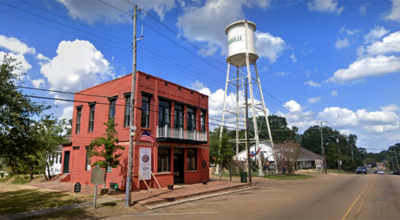‘Things can change in a moment’ — Mississippi man learns to value life amid deadly pandemic
Published 8:01 am Sunday, January 10, 2021
COVID-19 has taught 47-year-old Ricky Rowan the sobering reality of death.
“Through this pandemic, I look at life being so precious, but also realizing that through this, death is reality,” Rowan said.
When the Booneville native first heard about COVID-19, he didn’t think it would transform the country the way it has. He believed it would “come quickly and leave quickly,” and couldn’t have imagined the number of people it would affect, the scale at which it would kill.
He’s come to learn that the virus “has no respect of person,” and that its long reach can just as easily touch home.
“Take it very seriously because it just could affect anybody,” Rowan said. “Here in the community, we’ve lost several people from the pandemic, so it has definitely hit close to everybody’s home in one way or another.”
Rowan has been a law firm consultant for 23 years, travels, sings and has run an outreach ministry, Hallelujah Anyhow, for approximately 30 years. The pandemic immediately put a damper to his job. Rowan typically travels and interacts with many people. The need for social distancing quickly brought that to an end.
Hallelujah Anyhow helps the elderly and underprivileged in nursing homes, feeds the hungry, and helps people who have lost their homes to fire. With his outreach ministry, Rowan would in a typical year visit 25 to 35 nursing homes, totaling 70 to 80 engagements and seeing 15,000 people. He would often meet with people one on one; now, he is limited to interviewing people who need help over the phone or through video calls. Because of this, the outreach program has largely been halted. Visiting stopped to protect the elderly, who are more vulnerable to adverse outcomes from COVID-19.
Rowan also changed how he interacted with people on a daily basis. The smallest example is leaving his mask behind while in a hurry and having to retrieve it. A larger example would be how he can no longer visit someone’s home unannounced, or gather with loved ones during the holidays.
“It helps you value different things that we actually took for granted before this happened,” Rowan said. “We took for granted traveling. We took for granted interacting closely with coworkers and friends and family and all these different things. So it really makes you think.”
His own family is close-knit, with several immediate family members in town. Despite their close proximity, COVID-19 has put a physical distance among them. Prior to the pandemic, they would regularly gather for barbecues and birthdays.
But in some ways, the pandemic has also brought Rowan’s family closer. They more regularly keep in contact by phone. Since quarantine started, Rowan said they have called each other more frequently, just to check in.
“So many times, we took getting together with people and being close to people, we just took it for granted that that’s the way it would always be,” Rowan said. “Through this COVID-19, it showed us that that’s not the way that it has to be because things could change in a moment.”
Rowan’s also been hit personally. He’s lost numerous close friends to COVID-19, including recently. The experience has taught him how fragile life is. In his home county of Prentiss County, there have been 2041 COVID-19 cases and 42 deaths as of Dec. 28, according to the Mississippi State Department of Health. Of deaths, 15 occurred in a long-term care facility, which includes nursing homes, personal care homes, assisted living homes, and intermediate care facilities for individuals with intellectual disability – the very places Rowan regularly visits as part of his ministry.
“When you hear of people who have died from this, those that you know personally and those that you don’t know personally, it affects their families and you tremendously,” Rowan said.
Even how he interacts with death has changed because of the pandemic.
“Some people who have passed away, we haven’t been able to be there with them or to see them in their final hours,” Rowan said. “So through a lot of prayer, that has brought us through and taken us through friends and loved ones that we’ve lost.”
Through the loss of friends and loved ones, Rowan has learned the importance of having a personal relationship with God and used prayer to sustain him. When churches shut down, he gained a deeper insight on and more personal relationship with God “because it’s a one-on-one basis now.”
“It’s something that you really have to pray about and ask God to wrap your mind around that,” he said. “He has everything under control and He’s a God that can’t do wrong, so we just have to keep our minds focused on that realization.”
Despite this being a devastating pandemic, Rowan believes there were teachable moments as well. During quarantine, people checked in on people who needed food and water but couldn’t get to it physically. Families who lost loved ones were forced to be brought closer together.
Overall, the pandemic slowed life down, made people focus. It changed people’s perspectives, including Rowan’s.
“We can look back on this COVID-19 and see how it has separated us from friends and family and loved ones,” Rowan said. “Once this is done, hopefully we can jump back in there and really make a difference in how we interact with people and friends and loved ones and family.”






